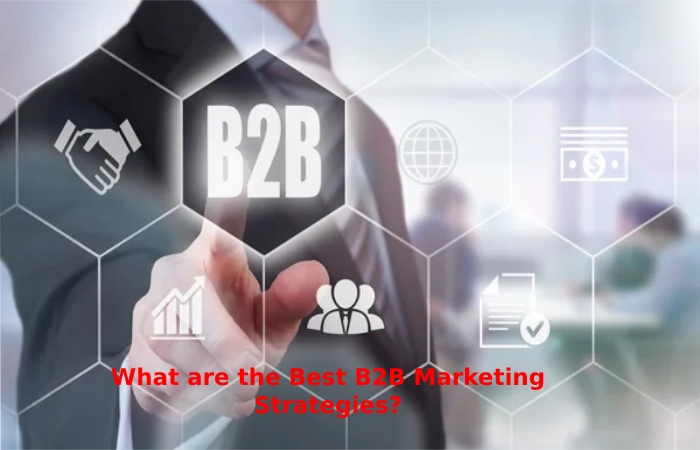Table of Contents
Introduction
B2B marketing is where a company sells its products to another company and not directly to an end consumer. Other companies consume the products or services created by a specific business, these being the ones that provide them to final consumers, individually, in a second transaction. There is no direct sale, but there are intermediaries between who makes the product and who finally consumes it; it is another way of attracting company customers. They are b2b customer transactions. There are notable differences between B2B marketing and B2C marketing, which is the one that focuses on a direct sales relationship between the company and the consumer. Nevertheless, they are two markets with many aspects in common, although there are points of disagreement.
What are the Best B2B Marketing Strategies?

Strengthen your Brand Identity
Companies with a solid corporate image are more likely to be able to do business with other companies. You can hold solidarity events, improve your workers’ conditions, define your company’s values, or any other action to gain notoriety.
Increase your Online Presence
Increasing your online presence will make your company better known to others. You can do SEO, and SEM campaigns, improve your content marketing with a blog or improve your website.
Work on Email Marketing Campaigns
The email marketing campaigns segment appropriately so that you reach the companies you are interested in doing business with. Use specific tools and send personalized emails to people who may be relevant. Inbound marketing is very relevant to attracting potential customers.
Create a Contact Database
With a good database, you can access the potential clients your company is most interested in. You can capture them at fairs or company events to be able to target a more specific audience. First, you must define your buyer persona.
Also Read: Why is Metaverse on Everyone’s Lips?
Characteristics of B2B Marketing
- Lower number of customers: The target customer of a B2B marketing strategy is a company. Therefore, the number of customers is smaller than if they are individuals.
- More complicated decision processes: A company’s procedure to decide whether to buy a product can be extended because several people are involved, and they follow specific steps set by the company.
- Less emotion and more rationality: The purchase of an individual customer is usually based on impulses and emotions, while the purchase of a company is based on data and is more rational.
- More expensive capture: Due to the time that decision procedures take and decision-making based on objective data, attracting new customers is more costly in B2B marketing.
- The complication in the access of the person who decides: Sometimes it isn’t easy to find the person who determines the purchase so you can use various means such as professional social networks such as Linkedin.
- Adaptation to digital processes: B2B marketing must adapt more to technological advances and include online marketing strategies.
What are the Differences Between B2B and B2C Marketing?
Although B2B marketing is often compared to business-to-consumer (B2C) marketing, the same methods and channels cannot simply be transferred to B2B marketing strategies in an analogous way.
Here are some essential differences that define how B2B and B2C communication must be carried out.
Limited Number Of Buyers
The number of prospective buyers for a B2B product or service is much smaller than for a mass-produced consumer product. Therefore, marketing content must be carefully target to the interests and needs of the target group.
Relationships Can Last
When a consumer buys a product, it often represents the final stage of the marketing and sales channel. However, for a business customer, a purchase is often just the first milestone in a long-term relationship. It is essential to ensure that after-sales service expectations are met.
Not only that, but B2B marketing can also continue after the sale; for example, newsletters with product updates, invitations to webinars, and other similar measures to maintain and consolidate the customer relationship.
B2B Buyers are More “Rational” and Accountable to More Stakeholders
In B2B marketing, buyers may be better inform and less likely to buy on impulse or a whim. Since they are spending their organization’s money and not their own, they are accountable to others for their decisions.
They ask key ROI questions that individual consumers often overlook; therefore, your team must have the necessary knowledge to provide an elaborate and detailed response to technical questions.
Personal Connections are More Important
We have mentioned earlier that a critical characteristic of B2B marketing is the long-term relationship with fewer customers. With this in mind, many B2B businesses often appoint faithful account managers to encourage personal connections.
These account managers may, for example, apply a per-account marketing approach, enabling you to nurture relationships with a small number of qualified candidates by targeting them on their preferred channels.
Conclusion
B2B (business-to-business) marketing refers to marketing or content strategies targeted at a company or organization. Any business that sells products or services for another organization (rather than to end consumers) typically uses B2B marketing strategies.
Also Read: Network Protocol: The Complete Guide with all the Basic
